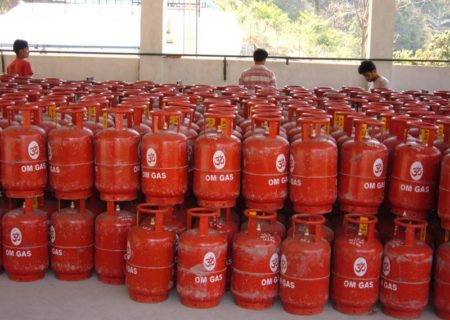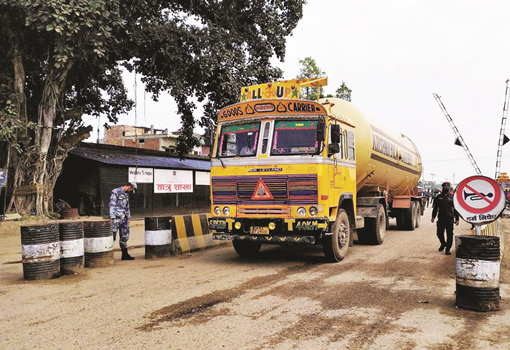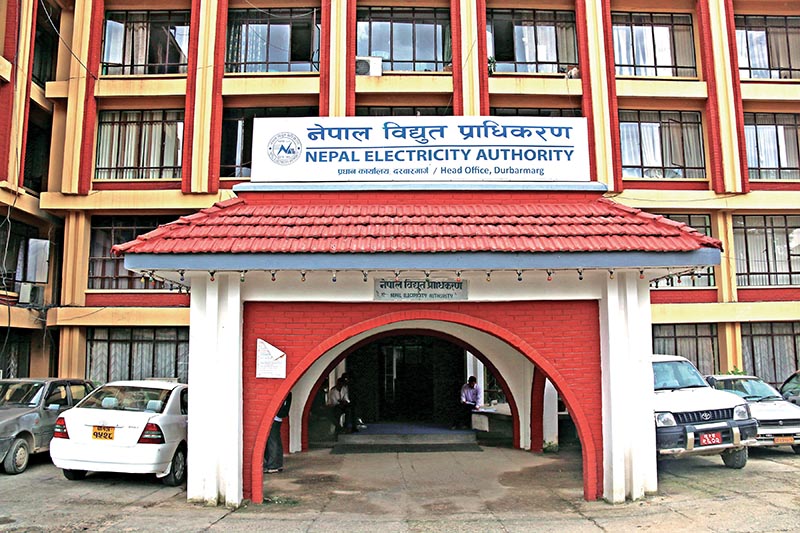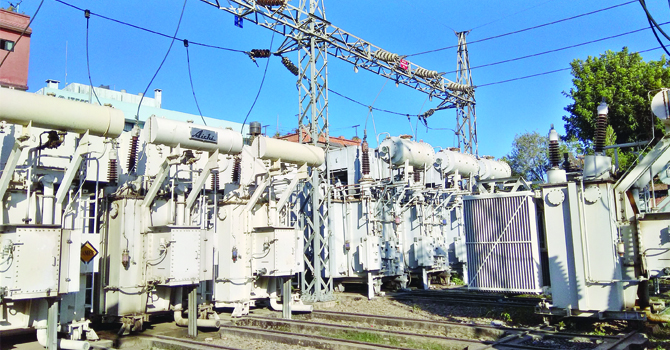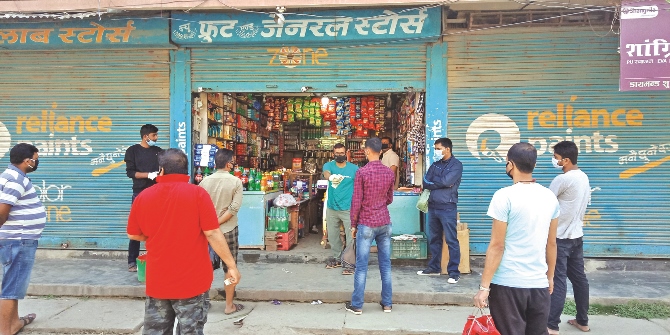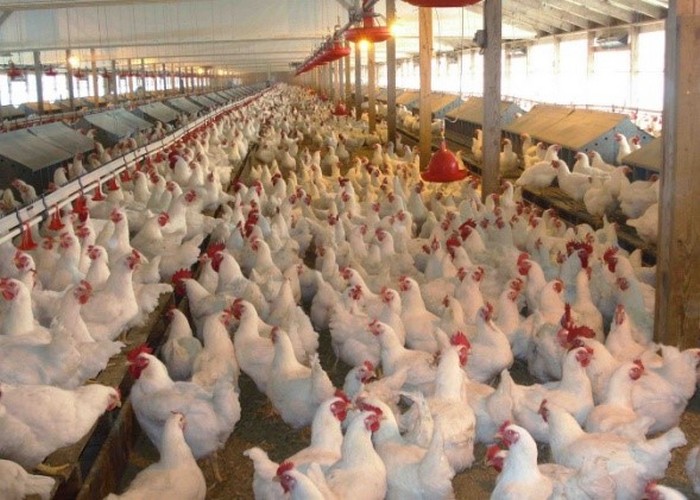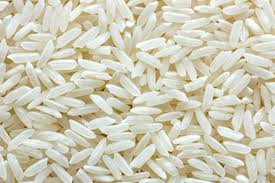Farmers at loss after milk collection drops by 50%
By Laxman Kafle
Kathmandu, Apr. 23: Dairy farmers across the country have been dumping thousands of litres of milk daily due to reduction in its demand after the enforcement of the lockdown.
The milk collection has dropped by over 50 per cent across the country due to the lockdown as the demand for milk has decreased significantly, specially in the Kathmandu Valley and other urban areas, said Babu Kaji Panta, deputy executive director of National Dairy Development Board (NDDB).
At present, the private dairy associations and state-owned Dairy Development Corporation (DDC) have been collecting only 50 per cent of the previous collection of milk in the wake of lockdown, he said.
“Now, around 450,000-500,000 litres of milk is collected on a daily basis from the farmers across the country against the normal collection of 1,000,000 litres a day. As a result, the farmers are facing a loss of Rs 25 million daily,” he told The Rising Nepal.
He, however, said that the dairy sector was facing loss of about Rs 60- 70 million daily.
The demand for milk has significantly decreased in Kathmandu Valley which has hampered collection in the villages.
The demand for milk and milk products has decreased by 50 per cent only in the Kathmandu Valley to 300,000 litres from 700,000 litres per day.
The NDDA has been holding discussions with the government to support the farmers to overcome the crisis, he said, adding that the government should provide cash subsidy to the farmers in grass farming and feed to make up the losses, he said.
Radha Krishna Sapkota, chairman of Nepal Dairy Association, said that milk collection through the formal sector had decreased by over 50 per cent after the lockdown. Collection of milk stands at 17 per cent from the formal sector and 33 per cent from the informal sector whereas about 50 per cent milk of the total production is consumed by the farmers themselves.
He said that the dairy sector faced losses of Rs 2.5 billion in a month due to the lockdown.
“We are collecting milk from the farmers every alternate day. The dairies under the NDA are now collecting about 80,000 litres of milk on a daily basis whereas at normal times it was around 350,000 litres,” he said.
He said that the drop in milk collection was natural as the demand for milk in the urban areas, including Kathmandu, had decreased following closure of hotels and restaurants and party venues.
“The collection of milk drops mainly due to the decrease in its demand, not due to the problem in supply. There is no obstruction for the supply of milk during the lockdown,” he said.
President of Dairy Industry Association (DIA) Raj Kumar Dahal said that they were trying to collect milk from the farmers as per the demand in the market.
“The milk collection has further decreased for the last few days after the milk powder plant of Chitwan was closed. The plant of Chitwan has a capacity of 150,000 litres a day. Another milk powder plant of Pokhara is not operating in full capacity, which has also resulted in fall in milk collection,” he said.
According to him, the association has directed its members to collect at least 50 per cent milk from the farmers in any situation.
He said that the dairies would increase milk collection if the milk powder plants were run in full capacities.
DDC uses 50% of collection for making powder
The Dairy Development Corporation (DDC), the state-owned milk supplier, is continuously collecting milk in full capacity during the lockdown.
The DDC is collecting about 180,000 litres of milk daily from across the country. “We increased the collection during the lockdown to support the farmers after the private dairies failed to collect milk fully,” Rudra Prasad Poudel, General Manager of DDC, said.
The daily milk collection of DDC was around 160,000 litres before the lockdown.
“We are not able to collect the milk available in the market due to limited capacity and reduction in its demand,” he said.
Out of total collection, the DDC is supplying around 80,000 litres of purified milk and 20,000 litres of curd and dairy products.
“With reduced demand for milk and dairy products, the DDC is using excess milk for producing milk powder. Around 80,000 litres of milk is being used for making power on a daily basis, which is half of the total collection,” he said.
Recent News

Do not make expressions casting dout on election: EC
14 Apr, 2022
CM Bhatta says may New Year 2079 BS inspire positive thinking
14 Apr, 2022
Three new cases, 44 recoveries in 24 hours
14 Apr, 2022
689 climbers of 84 teams so far acquire permits for climbing various peaks this spring season
14 Apr, 2022
How the rising cost of living crisis is impacting Nepal
14 Apr, 2022
US military confirms an interstellar meteor collided with Earth
14 Apr, 2022
Valneva Covid vaccine approved for use in UK
14 Apr, 2022
Chair Prachanda highlights need of unity among Maoist, Communist forces
14 Apr, 2022
Ranbir Kapoor and Alia Bhatt: Bollywood toasts star couple on wedding
14 Apr, 2022
President Bhandari confers decorations (Photo Feature)
14 Apr, 2022



